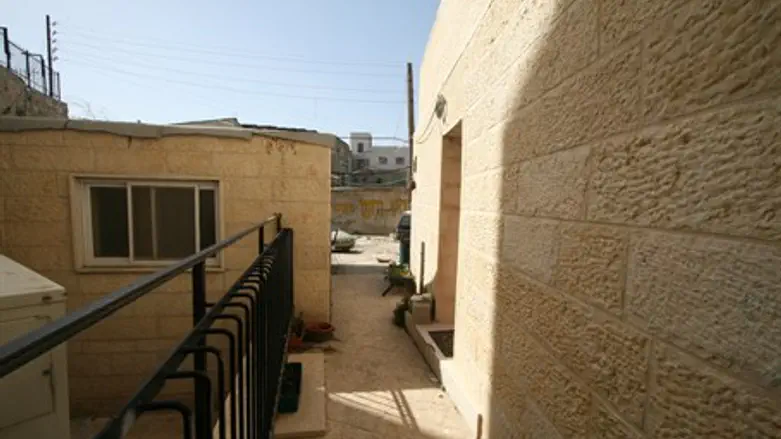
Supreme Court Judge Elyakim Rubinstein on Wednesday granted the State's request for a third extension in responding to a court order which calls to evict the residents of the Beit Ezra home in Hevron.
At the same time, Judge Rubinstein ruled that the State will pay 5,000 shekels to the plaintiffs, the leftist Peace Now and local Arab merchants, due to what he termed “the large number of extension requests.”
The Beit Ezra saga began in 1947, when the Ezra family left Hevron. The family was the last to leave after the 1929 Hevron massacre, in which local Arabs murdered 67 Jews in the city.
Like all Jewish property in Hevron, Beit Ezra was confiscated by Jordan following the War of Independence and declared “enemy property.” It was rented out to Arab storeowners. When Israel regained the land in 1967, Israeli authorities continued to rent the property to Arab storeowners.
The Second Intifada (also known as the Oslo War) hit the Jewish community of Hevron hard. Ceaseless terror attacks led the army to close the Arab stores in Beit Ezra and elsewhere in Jewish neighborhoods for security reasons.
The Jewish community proposed that in the storekeepers’ absence, Jews be allowed to live in Jewish-owned properties in the area, an idea supported by the property’s owner Yosef Ezra. When their request was ignored, several families decided to move into the properties on their own.
In 2008, Peace Now attempted to obtain an eviction order for Beit Ezra. Instead, a military appeals court issued a verdict favoring the Jewish community and criticizing the Lands Custodian. The custodian “left the property empty, desolate and neglected for years… The custodian did not consider the good of the property, and did not consider the wishes of the original owner, Mr. Yosef Ezra,” the court ruled. Judges noted that “the Jewish families’ residence in the property significantly improved the condition of the property.”
The Arab storeowners have no rights to the property, judges said, and at most could ask for compensation over the termination of their rent agreement.
The court strongly suggested that the property remain in Jewish hands, and delayed eviction for two months to allow the Jewish community to appeal for use of the building, which it did immediately. However, the appeal was ignored and to this date has not been answered.
The latest request for an extension by the State was filed last Thursday after a heated debate by the Ministerial Committee on Settlement Affairs.
During the debate, most of the members of the committee said that the committee should recommend that the State adopt the ruling issued in May 2008, which calls to lease Beit Ezra to the Jewish settlement in Hevron before evicting the residents. At the same time, Deputy Attorney General Attorney Mike Blass firmly rejected adopting the ruling. Since the hotly debated issue remained undecided, the extension request was submitted to the Court.
MKs Ze’ev Elkin (Likud) and Aryeh Eldad (National Union) responded to the Court decision which ordered the State to pay 5,000 shekels to Peace Now, saying that “the price paid by the government for its lack of ability to promote decisions on matters of settlement is much heavier than 5,000 shekels. It’s a price of the eviction of Jews without justification which seriously hurts democracy and brings about the loss of the government’s ability to adhere to the values for which it was elected.”
Elkin and Eldad, who head the Knesset’s Land of Israel Lobby, added, “We call on the government to govern, not to be drawn into attempts by factors in the Attorney General’s Office to dictate leftist policies, and do whatever is necessary ensure that the government’s position be properly represented in the Court when it comes to Migron, Hebvon, and everywhere in Israel.”
Earlier this week, the State Attorney's Office and Attorney General's Office defeated Israel's elected leaders in the matter of Migron.
The State's response to the Supreme Court motion filed by residents of Migron will determine that they must be evicted from their land. This recommendation was made despite the fact that residents have recently purchased the land that their homes stand upon and is not in line with the recommendation of the Ministerial Committee for Settlement Affairs, which supported the residents’ petition.
National Union chairman MK Yaakov “Ketzaleh” Katz has said he intends to submit a bill to the Knesset, that will stipulate that an Attorney General who refuses to present the government’s position before the Supreme Court will be fired.
